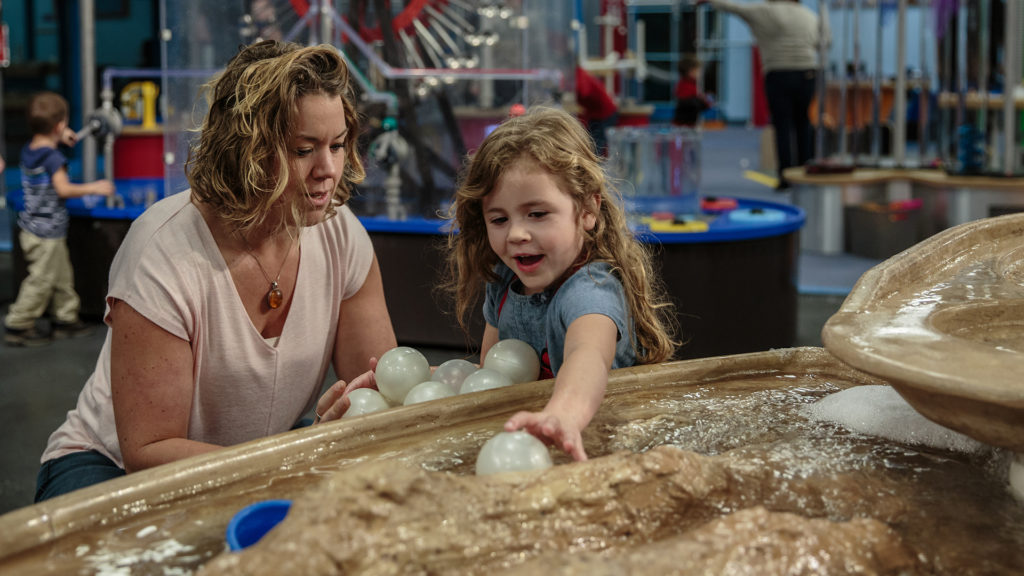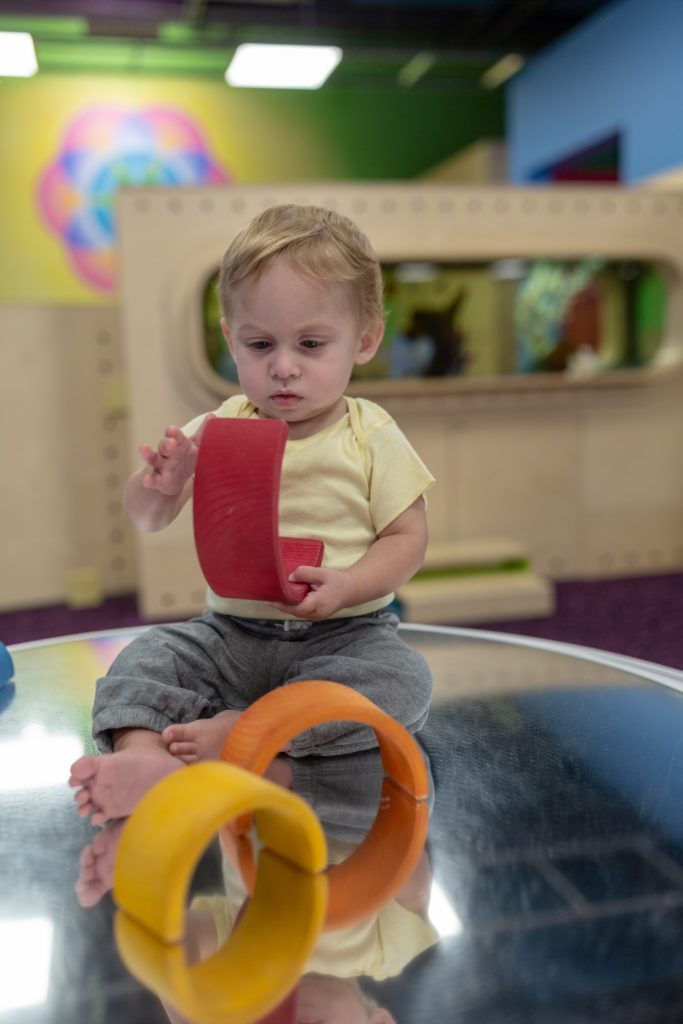OPEN Labor Day | Monday, September 2, 9–4

OPEN Labor Day | Monday, September 2, 9–4

By Alix Tonsgard, MS, Early Learning Specialist, DuPage Children’s Museum
This morning I had the opportunity to sit with a 3-year-old who was eager to share her world with me. She told me about how tiny her one dog is and how she has a stuffed animal that “matches” her other dog, about her music teacher, and about how her baby brother “knows how to spit up” and drool. (He is 7 months old.) As we sat on the floor drawing pictures with our fingers in the sand on top of a colored light box, one by one, her experiences with the world poured out of her.

As I sit here and reflect on this exchange, I think about how this interaction beautifully illustrates the power of play. You see, literally every new experience a young child has teaches them something about the world, but they don’t just take that information in, store it in their brains, and move on. I’m not sure about you, but I don’t do that either when I learn something new. In play, young children work to master new bits of information, really wrap their minds around it, understand it deeply, and store it in their brains in a place where they can recall that information and apply it later. In play, children are constantly seeking to balance new knowledge with that which they already know about the world.
Let me return to my new friend. As we continued to draw in the sand, she drew a circle and told me it was an egg. She then told me she liked to play with toy eggs. Thinking she was referring to an egg hunt, I asked if that was something she had recently done. She had, but really that was a connector to something bigger she was working on understanding. With the help of her mom, she was able to tell me that they had seen birds building a nest in their yard and laying eggs.

Something happened with the landscapers moving the nest which resulted in the parents abandoning the eggs. My new friend’s mother was upset and called a wildlife group to see what they could do. This then led to a trip to Home Depot, where the mother and child purchased items to attempt to create something that would get the parents to return to the nest. Apparently, the birds had been flying around unsure of what to do but would not return to the nest. In that time, another bird came and took the eggs, all of which was very upsetting to the girl’s mother. So you see, there was a lot of information this child was trying to make sense of: life cycles, the emotional reactions of important adults in her life, the difference between toy eggs and real eggs, and much more I am sure.
May I remind you that this was all coming from a child who had only recently turned 3 years old. This is a lot for a 3-year-old to process and make sense of, but she was in a space engaged in an activity that she had chosen, which made her feel safe to work on developing her understanding of these complicated ideas. Did she master this new knowledge in this one sitting? Most likely no, and I am guessing she will continue to engage in imaginative play about birds and eggs as well as talk about and tell this story for as long as she needs to. Then one day, she will reach a level of understanding or be ready to master something new, and she will move on.
This is what we do at DCM. We intentionally create environments and experiences that stimulate the desire to be creative, curious problem solvers, driven to construct a deep level of understanding of the world at their own pace. A place where children feel safe exploring, experimenting, and mastering and a place where the important adults in their lives can actively take part in that process and see the learning come to life. This is constructivist learning theory in action. This is why we believe in the power of play. This is why we do what we do.
__________________________________________
About Alix
Alix Tonsgard is the Early Learning Specialist at DuPage Children’s Museum. She holds an MS in Child Development from the Erikson Institute. Acting as the Museum’s advocate for early childhood development and learning, she ensures that the latest research in Early Childhood Education is represented in all Museum exhibits, professional development initiatives, and public programs.

